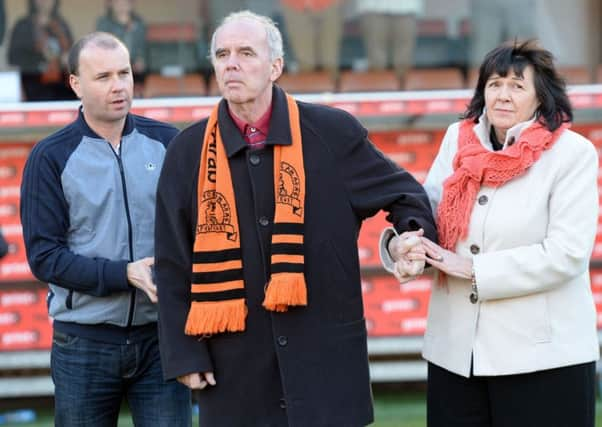Number of younger patients given treatment for dementia on rise


The rise has led to a renewed plea for a new law to widen free care services for younger patients.
Campaigners are calling for the instatement of “Frank’s Law” – a proposal to extend free personal care named after the former footballer Frank Kopel who died aged 65 – six years after being diagnosed with dementia.
Advertisement
Hide AdAdvertisement
Hide AdAcross Scotland, the number of people under 65 being treated for dementia is increasing each year and rose from 777 in 2014-15 to 808 in 2015-16.
According to data collection organisation ISD Scotland, figures highlighted by the Scottish Conservatives, back in 2009-10, there were fewer than 600 under-65s living with the illness.
Last night dementia expert Professor June Andrews said the increase was “almost certainly” down to improving diagnoses of the illness.
“The NHS should be congratulated for identifying these people and giving them help,” said Prof Andrews, author of Dementia: The One Stop Guide.
“It does seem incredibly unfair on families having to deal with the tragedy of early onset dementia that they do not get the same benefits as older patients. But local authorities are already struggling to provide the care to which over 65s are entitled.”
Among those treated in 2015-16 were four patients aged between 15 and 29, nine between 30 and 39 and a total of 43 aged between 40 and 49.
In addition, there were 85 patients aged between 50 and 54, 228 between 55 and 59 and 439 between 60 and 65.
Scottish Conservative health spokesman Miles Briggs said: “Even though people in those age groups make up a minority of the total cases, we are still talking about hundreds of people receiving treatment each year, and that number is rising. Frank’s Law campaigners have worked hard to ensure politicians are acutely aware of the challenges faced by those who are struck by dementia at an unusually young age.
Advertisement
Hide AdAdvertisement
Hide Ad“We now need to take that on and ensure this is put into legislation, and I hope the Scottish Government enables that to happen.”
Health secretary Shona Robison said: “The Scottish Government is committed to protecting free personal and nursing care, and to examining the extension of free personal and nursing care to those under 65. We will continue to take action.”